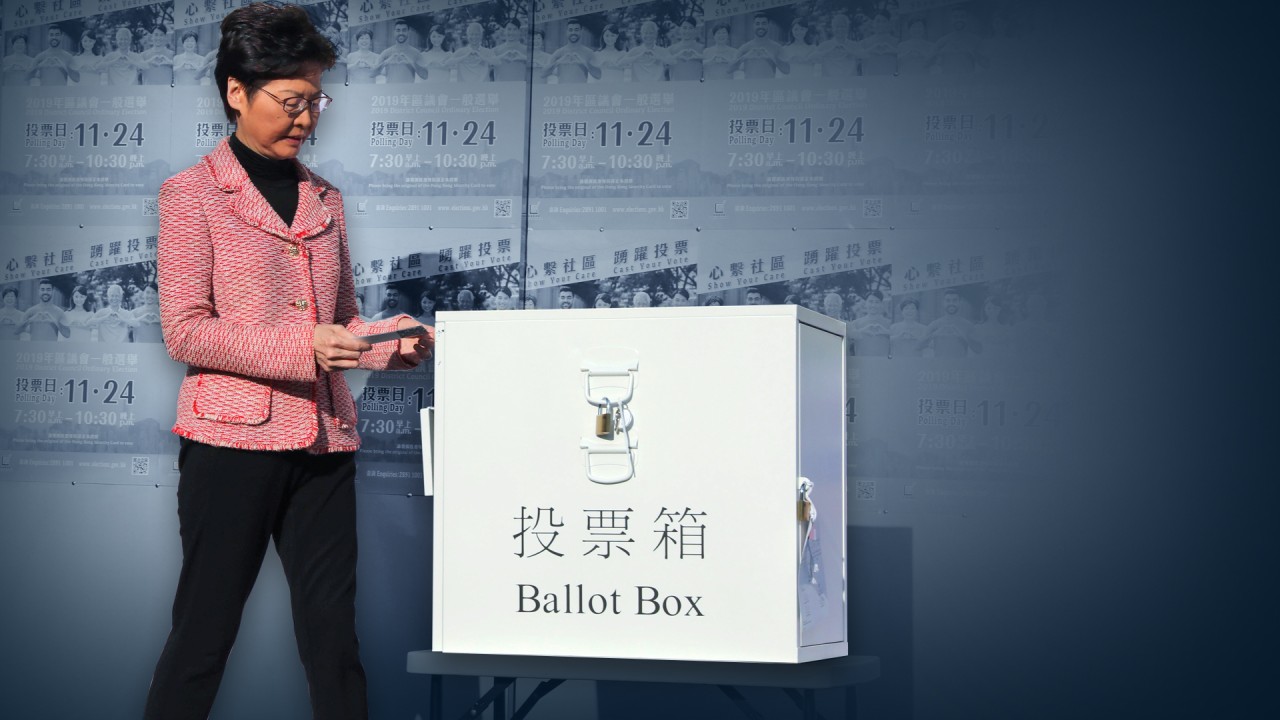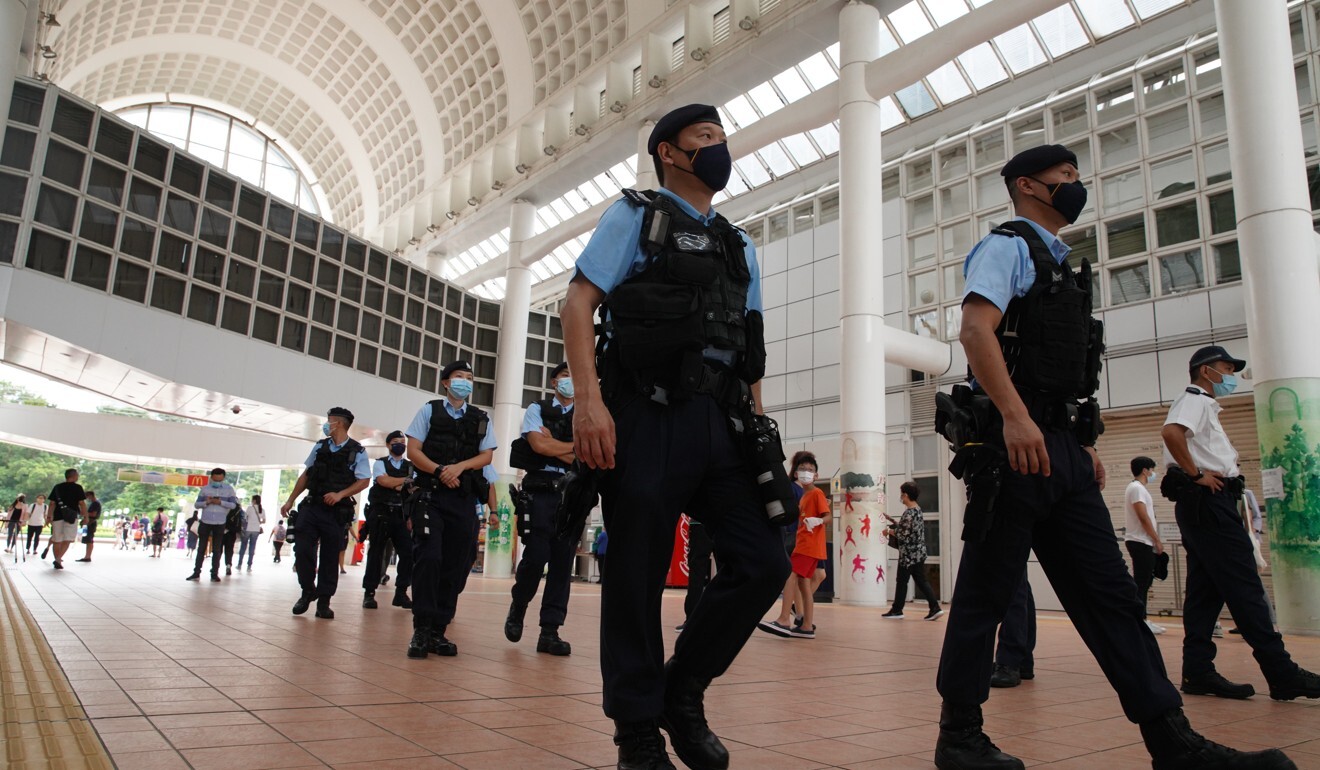
Hong Kong now has a powerful Election Committee. Will it be a new ‘superstructure’ reshaping city’s political landscape?
- Before Beijing’s radical revamp of city’s electoral system, committee was largely a dormant body that stirred to life ahead of chief executive race
- Mainland legal expert says body should be given new roles such as monitoring Hong Kong government and legislature
Apart from choosing the next chief executive and lawmakers, the 1,500-strong committee may take up new roles such as monitoring the city government and offering policy proposals, analysts and a pro-Beijing heavyweight told the Post.
Before Beijing’s radical revamp of the city’s electoral system, the Election Committee was largely a dormant body. It stirred to life with a race to select its members around December of the year before the chief executive election was due. About three months later, around March, it would convene to select the city’s leader in a keenly watched poll. That was the sum of its role.

Tian Feilong, an associate professor at Beihang University’s law school in Beijing, said he expected the committee to take up more functions in governance on top of what was stipulated in the resolution endorsed by the National People’s Congress (NPC), China’s parliament, in March.
“No institution is more representative than the Election Committee. It should be given new roles like monitoring the Hong Kong government and Legco, as it is tasked to ensure the principle of ‘patriots governing Hong Kong’,” he said in an interview with the Post on Sunday.
“The central and Hong Kong governments should also canvass the views of committee members on various policy issues.”
5 things to watch out for in Sunday’s polls, the first since Beijing’s system overhaul
“Whether the committee should set up permanent offices or hold meetings on a regular basis are issues worth exploring,” Tian said, adding that he did not see any conflict with the Basic Law if the committee took up the role of monitoring the Hong Kong government.
“Granting more powers to the Election Committee would ensure a better implementation of the ‘one country, two systems’ formula,” he said.
There was a need to set up a regular communication mechanism between the committee and the Hong Kong government, Tian said.
He said he had exchanged his views on expanding the powers of the committee with mainland officials who were also studying the matter.

04:21
Explainer: How does Hong Kong select its government?
Tam Yiu-chung, Hong Kong’s sole delegate to the NPC Standing Committee, China’s top legislative body, revealed that the chief convenor would be appointed after Sunday’s poll, without setting a time frame.
Tam said he had not heard the Election Committee would be tasked with additional responsibilities beyond what was already set out. “But I can’t say definitely if it would not do so in future,” he said.
“I’m pretty sure the central government has raised its expectations of committee members, urging them to connect with members of the public and explain the revamped electoral system.”
This directive was made plain last weekend ahead of the Sunday poll. Prodding them to take part in a citywide outreach campaign, the central government sent a clear message to hundreds of tycoons and Beijing loyalists who were taking their seats without contest that they must keep their feet on the ground, and knuckle down to collect feedback to improve governance.
‘Big Brother is watching’: why Beijing ordered Hong Kong tycoons onto streets
Ahead of Sunday, most of the 1,500 seats had already been allocated to ex officio members or were won uncontested. Only 412 candidates were competing for 364 seats in 13 of the 40 subsectors, involving just 4,889 voters on Sunday. Among these voters, 1,940 were individual voters in the district committees while the remaining 2,949 were corporate voters representing organisations and companies.
Admitting the voter base had shrunk – by some 97 per cent to just 8,000 eligible voters from 246,440 in 2016 – Carrie Lam said the spread, however, was more representative as individual votes had been replaced with more corporate voters, representing the views of organisations and companies. There was still room for people with “different opinions” from that of the government, she insisted.
Chinese University political scientist Ivan Choy Chi-keung said he doubted if the committee – made up of like-minded members – would be an effective mechanism to monitor the government.
“When it comes to monitoring the city government, a more effective body to do the job would be Beijing’s liaison office in Hong Kong,” he said. “There is already talk of the liaison office playing the role of party committees in mainland cities and provinces.”

Still, Choy said he expected Hong Kong members of national associations, such as the All-China Youth Federation and the All-China Women’s Federation, would want to be more active in the governing of the city.
Ray Yep Kin-man, a political scientist at City University, said the newly amended Annex 1 could pave the way for the Election Committee to play a bigger role in the city’s governance.
“Some committee members are tempted to take up the role of monitoring the government,” he said. “But it could create a second power centre if the committee is given such a role. It could be a nuisance for the city government.”
Yep said while committee members were politically reliable, Beijing might not be happy with the competence or commitment of some among them.
“That’s why the central government ordered those who were returned unopposed to better connect with the public, in the hope of raising the legitimacy of the revamped electoral system,” he said.
Spotlight on Hong Kong Election Committee polls
While Tam said he was not certain whether the committee would be given new roles like monitoring the city government, he believed its members could form a welcome pool of talent for the government.
“All committee members are patriots coming from various sectors of the community. The government could identify some committee members for advisory bodies,” he said.
Agreeing, a mainland expert familiar with Hong Kong affairs, who spoke on condition of anonymity, said committee members could form a talent pool where the government could pick members of the governing team and advisory bodies.
Wong Kwan-yu, a local deputy to the NPC and an ex officio Election Committee member, said it was to be expected for the reformed body, given its scale and membership, to take up more roles in the future. But there was no need to be overly alarmed, he argued.
“The committee will not become another power centre. It is not an operational agency as such, and it is formed to elect some Legco members or elect the chief executive. Members are not expected to manage the day-to-day operation of Legco or the government,” he said.
“Having said that, it will not be unusual if the Election Committee has to step up communication with Legco or the chief executive. It will choose 40 Legco members and as their voters, members may expect the lawmakers to have more dialogue with the committee.”
Wong also said he believed it would not be too controversial if the chief executive were to consult committee members before important policy decisions were made, such as ahead of the annual policy address.
Vote counting kicks off in Hong Kong after polls close for key committee
“I don’t see it as intervention, It’s an overstatement to say the Election Committee will become a new power centre,” Wong said.
Others pointed to the “presence” of the Election Committee in Legco. Ex officio Election Committee member and pro-establishment legislator Paul Tse Wai-chun said: “It’s certain the expanded Election Committee will become more influential in the future under the electoral shake-up. But it is too early to say it can replace Legco or become another superstructure that oversees Legco’s work.”
Tse also foresaw that in the future, there would be the need to find a way for Legco to communicate with the committee effectively.
“We have 40 Legco members coming from the Election Committee. The committee’s role cannot be ignored.”
Additional reporting by Ng Kang-chung


